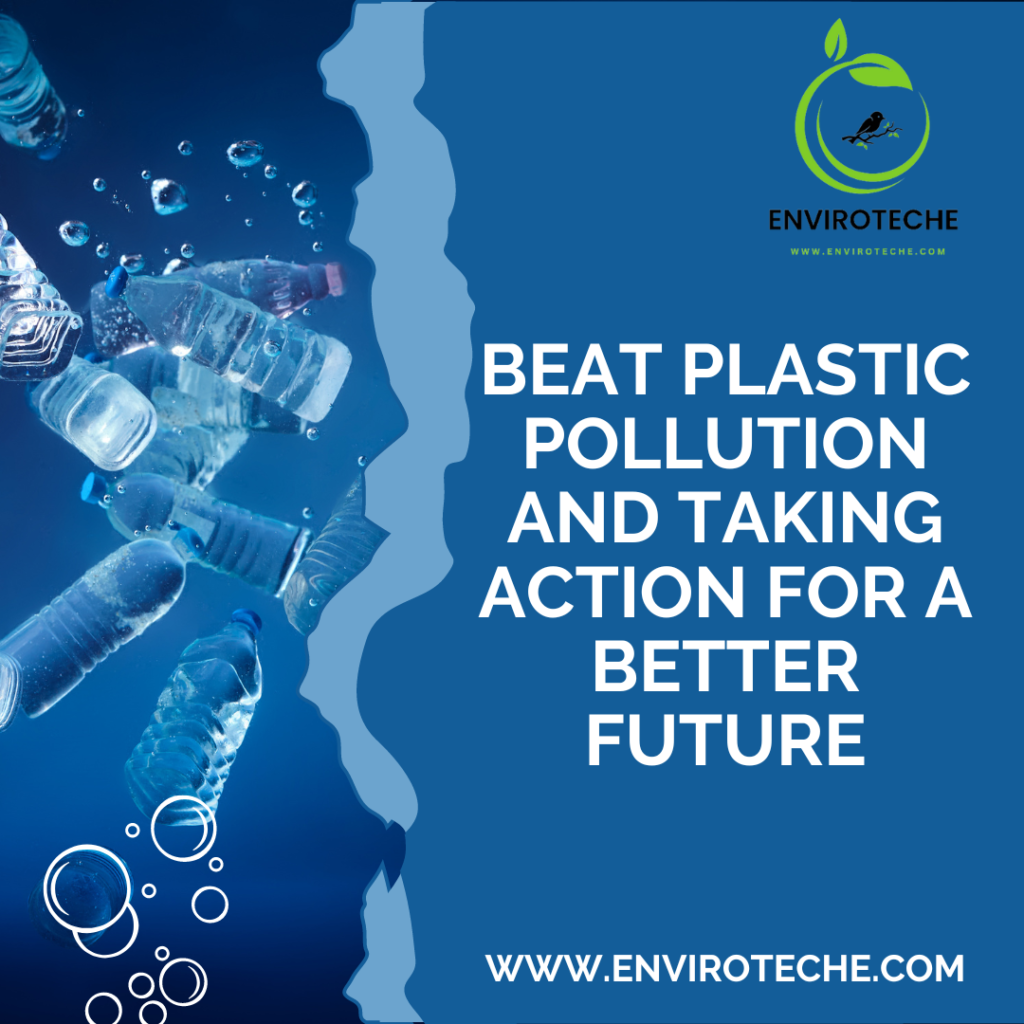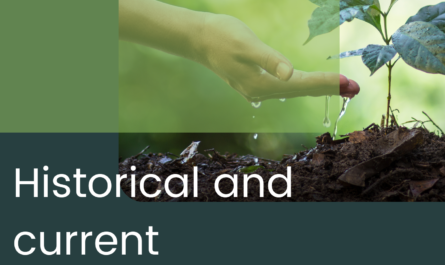
Beat Plastic Pollution and Taking Action for a Better Future
Tayyaba Munir
Plastic pollution has become the “ubiquitous workhorse components of the modern economy,” with worldwide manufacturing and usage increasing. Pollution caused by plastic is now recognized as a major universal problem that is wreaking havoc on habitats and human wellness. Annually, thousands of tons of trash made of plastic end up in landfills, lakes, and rivers, as well as distant wilderness areas.
Pollution pollution from plastic has become one of the most serious and concerning problems confronting nations that are developing, with far-reaching health and ecological consequences that ought to be tackled as soon as possible. Surprisingly, little research has been conducted on the subject, particularly on water and air contamination caused by plastics in Pakistan.
Municipalities are accountable for the informal handling of solid waste, which is inadequate, and the situation will worsen as population and industrialization grow. To tackle the problem of plastic pollution individually, there must be an urge for action to fill the knowledge gap along with enhancing existing conditions. Governments, societies, and business sectors must take urgent steps to combat plastic waste and protect the earth for the future
Recognizing the Situation of Plastic Pollution: The contamination of plastics endangers ecological systems. Ocean life is especially susceptible because discarded plastic blocks waterways, causing distress for sea creatures by getting stuck and consuming. Micro plastics, which are small plastic fragments, have entered the rivers and lakes, the ground, as well as the air we inhale posed a threat to our health. Pollution from plastic also interferes with biological functions, disturbs the distribution of food, and alongside has a detrimental effect on biodiversity.
Individual Accountability regarding Plastic Pollution: Personal accountability is a critical step in combating the pollution caused by plastics. Every one of us needs to become aware of the amount of plastic we use and work towards eliminating it. Simple actions such as utilizing recycled grocery bags, bottles, and disposable cups can have a big impact. We are capable of minimizing our chemical footprint and encouraging other people to act likewise through adopting ethical decisions and accepting environmentally friendly alternatives.
Collaboration with the Organizations against Plastic Pollution: Organizations have an essential role in the campaign against pollution. Regional efforts, comprising cleaning up beaches and surroundings recycling initiatives encourage the feeling of solidarity and elevate understanding regarding the dangers of plastic pollution. Cooperation with regional enterprises, educational institutions and nonprofit organizations can help strengthen such initiatives and result in lasting modifications at the local level.
Plastic pollution and Global Collaboration:
Encourage global cooperation to combat plastic pollution, which includes the exchange of standards of practice, research findings, and techniques. Make global commitments to minimize plastic waste and encourage environmentally friendly alternatives.
Plastic pollution and State Involvement
Administrations throughout the globe need to adopt an aggressive approach to tackling plastic pollution. The use of plastics might be substantially reduced by enacting efficient regulations involving prohibiting plastic bags or taxation. Legislating extended producer responsibility (EPR) tactics may encourage entrepreneurs to generate environmentally friendly packaging while taking into account their products’ longevity. To guarantee appropriate plastic waste handling, authorities may additionally make investments in waste disposal systems and foster recycling plants.
Pollution caused by plastic is an international environmental issue which needs an integrated strategy to efficiently address. Below are several plastic pollution suggestions:
- Limit the consumption of disposable plastics:
Motivate consumers and enterprises to use fewer disposable materials that include bags made of plastic, glasses, and dishes. Rather, encourage the adoption of recyclable options.
- Recycling:
Upgrade recycling facilities and procedures to increase the recycling of plastic rates. Execute guidelines requiring producers to incorporate reused resources in their goods, thereby encouraging a circular market.
- Handling the waste:
Improve systems for handling waste, particularly in countries with poor infrastructure, to keep plastic out of watercourses and the seas. Invest in the collection of waste, discrimination, and elimination infrastructure.
- Effective storing Solutions:
Encourage the investigation and creation of recyclable packaging supplies that can substitute typical plastics. Promote the consumption of products that are decomposing or combustible and made from recyclable materials.
- EPR (Extended Producer Responsibility):
Execute EPR strategies which keep producers accountable towards their products’ whole lifecycle, such as discarding or reusing. It promotes them to create environmentally conscious and swiftly reusable containers.
- Measures Aimed at Cleaning up the Oceans:
Assist operations and methods that aim to remove plastic waste from the oceans. Plastic debris can be collected and removed from the oceans using advancements such as floating barriers and cleanup vessels.
- Training and Outreach to the public:
Enlightening the general public regarding the dangers of contamination with plastic is critical for operating behavior shifts. Environmental awareness initiatives that emphasize the significance of minimizing, reusing and recycling plastics should be implemented in colleges, universities, and community centers. Educational initiatives using different channels of communication can help communicate knowledge, promote utmost importance and motivate broad action to combat plastic pollution.
- Change in manufacturing:
The industrial field is critical in developing creative approaches for addressing plastic pollution. Companies need to explore substitutes for disposable plastics, contribute to decomposing or compostable material studies and development, and modify wrapping to boost recycling potential. Partnerships among industries, governments, and research institutions can accelerate advances in technology while creating an industry for environmentally friendly solutions.
- Plastic Restrictions and Legislation:
Execute laws and prohibits particular kinds of disposable plastics, including polythene bags or tiny beads. This strategy has proven effective in diminishing the contamination of plastic in a variety of settings. As a result, it is suggested that lawmakers implement carbon taxation and support the sustainable development field which could contribute to a decrease in plastic consumption and waste in society.
To address plastic pollution thoroughly, these options and strategies must be combined. Authorities, organizations, communities, and ordinary people all have a part to contribute to addressing this global problem.
Conclusion:
To combat plastic pollution, every sector in the community must work together. Everybody has an essential part in this regard, from people making ethical decisions to authorities enacting regulations along with businesses adopting viable procedures. We can triumph over the issue of plastic pollution and build a safer, more robust, and more environmentally sustainable world for future generations by decreasing our dependence on disposable plastics, enhancing recycling structures, encouraging inventiveness, and raising knowledge. The opportunity has come to do anything.
References:
Ali, Y., Sara, S., & Rehman, O. U. (2021, July 2). How to tackle the plastic bags and bottles pollution crisis in Pakistan? Acost–benefit analysis approach – Environmental and Ecological Statistics.
Ahmed, T., & Khan Sipra, H. F. (n.d.). Environmental and Health Implications of Plastic Pollution: A Pakistan Perspective
Check Other Schlorships:

